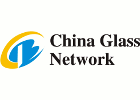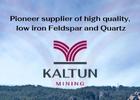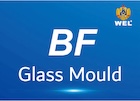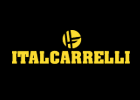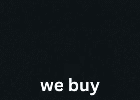At COP26 in Glasgow last November, Glass Futures exhibited glass products made with 90% less carbon, the result of a revolutionary trial funded by the UK’s Department for Business, Energy and Industrial Strategy (BEIS) Energy Innovation Programme and led by Encirc in collaboration with Diageo and HEINEKEN. Speaking exclusively to preferred media partner Glass Worldwide, Glass Futures General Manager Aston Fuller reflected on the achievement of this collaborative climate action. The full version of this article appears in the Jan/Feb 2022 issue that has been mailed globally and is also now available free of charge in the digital archive*
GW: How did Glass Futures’ presence at COP26 come about?
Like many others who applied to exhibit at COP26 we hoped to present at this exhibition to showcase challenge and demonstrate the action we are taking to lower carbon emissions. Fifteen to twenty permanent exhibits were successfully selected from thousands of applications.
In collaboration with industry and a major customer-facing consumer, the proposition we put forward was a publicly funded trial that has never been done before and reduced the carbon content of a product by 90% [see Glass Worldwide November/December 2021 p.72 for an interview with Diageo about the partnership with Glass Futures and Encirc to create the most sustainable Scotch whisky bottles ever produced].
I believe our selection was a recognition of the urgent need to collaborate effectively to achieve climate goals being set and in my opinion our project exemplifies what a really positive collaboration can actually achieve… not just as a long term target but demonstrable in the here and now. We successfully conveyed a message of collaboration and that this is an industry that can work together with public and private sectors.
GW: What was displayed on Glass Futures stand at COP26?
There was a simple concept of ‘spot the difference’ using four bottles: a Diageo Black & White Scotch whisky bottle and a Heineken bottle made using the typical manufacturing process, against two identical bottles that were manufactured using 90% lower carbon. We encouraged the public to examine the bottles and comment on any visible differences in the quality and appearance, with the point being that the consumer cannot notice a difference because these products are exactly the same. We demonstrated that we can change the industry and the way products are made without affecting how the consumer interacts with them in the marketplace.
We feel the display was impactful because it showed action and physical things that have actually happened and that’s why we took the Diageo Black & White bottles and the Heineken bottles [see Glass Worldwide March/April 2021 p.6 for details on the biofuels trial] to show samples of innovations in the marketplace that were manufactured with significantly lower carbon than similar products.
GW: With UKRI (UK Research and Innovation) having already invested £15 million to support the development of Glass Futures’ pilot R&D facility in St Helens, how did you partner with them during COP26?
As well as exhibiting with a podium demonstrating the collaboration between Glass Futures and Diageo, UKRI displayed a large LED glass façade designed by Sanmukh Bawa of The Glass Company working with G-Smatt that offered a visual presentation very prominently in the middle of the event. A key driving force in making it happen, Diageo sponsored the display which, after consultation with all our members, provided an opportunity for our key industrial partner members such as Siemens, Encirc, O-I, Guardian and NSG to collaboratively put out simple but excellently presented messages on a global stage; different glassmakers were able to have a common platform to talk about what they are doing for sustainability and demonstrate that the glass industry is working towards a common goal.
The screen is due to be sited at Johnnie Walker Princes Street in Edinburgh and is intended to travel around the world as part of the International Year of Glass 2022 so that the same messages from COP26 are promoted to as wide an audience as possible. We welcome location suggestions and requests from Glass Worldwide’s readers. The longer term plan is for the screen to then be displayed prominently at the innovation centre in St Helens.
GW: Is it fair to say that Glass Futures’ presence at COP26 demonstrated that the glass sector is at the forefront of addressing sustainable manufacturing in comparison to other heavy industries?
There is mounting pressure from consumers for sustainable packaging, especially in the container glass sector. Glass Futures is working to revolutionise glass manufacture and the technologies we develop can be transferred across other industries. There are comparable activities going on in other industries currently but I get the impression we stand out because of our approach of getting the entire supply chain together and by working in collaboration we can demonstrate change quicker.
GW: How would you summarise what was achieved at COP26 and how will it benefit the Glass Futures cause?
Personal interaction was very beneficial. A breakfast meeting attended by key partners and supporters finally gave us the chance to sit down for discussions; we have been working so hard over the last couple of years to bring about this bold and ambitious project but the challenge has been that we haven’t been able to meet people face to face.
At COP26 we were able remind everyone about the importance of glass, which is more often than not massively overlooked everywhere yet it is absolutely [a] foundation of civilisation and everywhere around us. At an event like that, we were able put glass as a material at the forefront of people’s minds.
It was a real benefit to be able to communicate that what we are doing is unique and can help catalyse the changes that the world needs. There was a recognition at COP26 that Glass Futures is happening and is not a theoretical conversation; it’s real and has received a huge amount of public and private support. COP26 was a very good opportunity to get out and show it on the public stage where is deserves to be – not only to talk within our industry but to put it to people from all over the world. I also hope it will inspire other groups in other industries to start thinking with the same bold and ambitious mindset.
GW: How would you summarise the achievements of Glass Futures during your two years as General Manager?
It’s been a very unusual and challenging time to bring together a team and a culture in the current working conditions… but we’re reaching milestones already. To actually step back and evaluate what we have achieved in a short period of time with a new team is almost overwhelming; it’s really humbling to see a group of people working so hard to achieve something that’s never been done before. The complexity of the Global Centre of Excellence at St Helens [alone] is enough to keep a business busy for many years, but we’ve done that in parallel to building relationships and an operational business with an accelerative growth path.
The contracts are signed for St Helens and by the end of 2021 we’d already carried out two hugely successful trials, with another set planned early in the new year to manufacture the lowest carbon float glass in the world.





